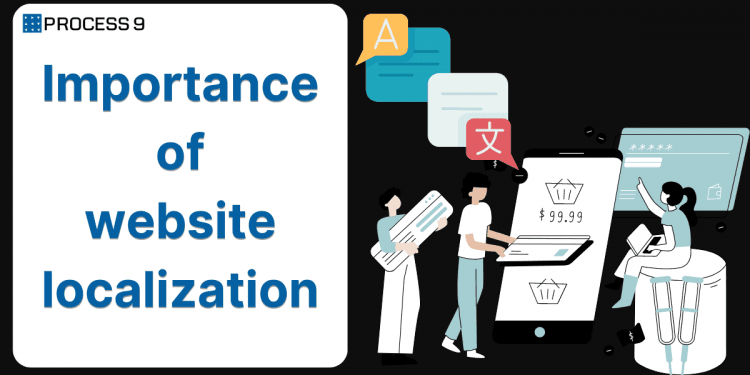If you have a website that is not localized for your target market, you could be missing out on a lot of business. Website localization is the process of making sure your website is accessible and appealing to your target market in their language. It’s not enough to simply translated your website into another language. You need to take into account the culture, customs, and nuances that are unique to that market. For example, consider this: would you buy from a website that was in English but used American spellings throughout? Probably not. It would look unprofessional and like the company wasn’t bothering to appeal to its British audience.
Benefits of website localization
There are many benefits of website localization. The most obvious benefit is that it allows you to reach a wider audience. If your website is only in English, you’re missing out on a whole lot of potential customers. By making your website available in other languages, you can dramatically increase your reach and tap into new markets.
Another big benefit of website localization is that it can help improve your search engine rankings. Search engines like Google give preference to websites that are available in multiple languages. So, if you want to rank higher in search results, localized versions of your site can give you a big boost.
Finally, localized websites tend to convert better than non-localized ones. When people visit a website in their native language, they’re more likely to understand the content and feel comfortable making a purchase or taking some other desired action. If your goal is to generate leads or sales from your website, localization can be a key ingredient in your success.
How to properly localize your website
In order to properly localize your website, you need to take into account the following factors:
1. Language: Make sure that the language of your website is appropriate for the region you are targeting. If you are targeting a specific country, then it is advisable to use the language of that country. For example, if you are targeting France, then your website should be in French.
2. Currency: Make sure that the currency on your website is appropriate for the region you are targeting. If you are targeting a specific country, then it is advisable to use the currency of that country. For example, if you are targeting France, then your website should use Euros.
3. Time Zone: Make sure that the time zone on your website is appropriate for the region you are targeting. If you are targeting a specific country, then it is advisable to use the time zone of that country. For example, if you are targeting France, then your website should be in Central European Time (CET).
4. Local holidays and events: Take into account local holidays and events when choosing dates for promotions or other events on your website. For example, if you are launching a new product on your website on December 25th, make sure that this date does not coincide with a major holiday in the region you are targeting (such as Christmas in Europe).
5. Local culture and customs: Be aware of local culture and customs when creating content for your website
Why website localization is important for business
As the global market continues to grow, more and more businesses are looking to expand their reach by entering new markets. One of the most important things to consider when expanding your business into new markets is website localization.
Website localization is the process of adapting your website content to better appeal to your target market. This can involve translating your content into different languages, as well as making sure that your website is optimized for search engines in your target market.
There are many benefits of website localization for your business, including:
1. Increasing your reach: By localizing your website, you can make it accessible to a wider audience. This can help you reach new customers and grow your business.
2. Improving customer engagement: Localized websites are more likely to engage and convert visitors into customers. This is because they provide a better user experience and are relevant to the user’s search query.
3. Boosting SEO: Website localization can help you rank higher in search engine results pages (SERPs) for your target market. This is because localized websites are often seen as more relevant and trustworthy by search engines.
4. Enhancing brand image: A localized website can help improve how your brand is perceived in foreign markets. This can lead to increased brand awareness and loyalty, which can ultimately boost sales and profits.

















































